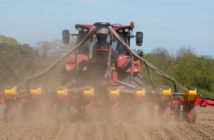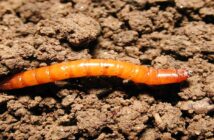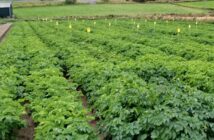Bayer and Rothamsted Research have entered into a strategic framework agreement to improve collaborations in scientific areas that will support the development of more customized agronomic solutions for farmers.
Building on a track record of collaborations, the partners are forming this strategic alliance to support a digital revolution for detecting and managing biotic threats such as pests, pathogens and weeds more sustainably. Co-ordinated activities, in the laboratory and in the field, will generate the data, know-how, tools and technologies that help to support a transition to smarter crop protection.
The partners will work together in a number of research areas: from real-time detection of pests in the environment to understanding the evolution of resistance; and from the identification of new modes of action of insecticides to novel approaches to controlling pests.
“The strategic alliance with Rothamsted will help us find further sustainable solutions for the challenges that we face in modern agriculture. Bundling the expertise, know-how and exchange of ideas will lead to further innovation in our company,” said Dr. Adrian Percy, Global Head of Research and Development at Crop Science, a division of Bayer. “Crops are exposed to a wide range of both biotic and abiotic stresses, and we expect our enhanced collaboration with Rothamsted to help us develop a better understanding of how these factors can be more sustainably managed to reduce crop losses worldwide and manage resistance more effectively.”
“At the heart of our research lies the need to feed a growing world population in a more sustainable manner,” said Achim Dobermann, director and chief executive of Rothamsted. “Although research institutions such as ours can contribute much in addressing that challenge, we need to partner with others, including industry, to achieve real breakthroughs and have bigger impacts. This alliance will provide us with a whole new opportunity to work together on complex challenges, towards making farming more precise, more productive … and more sustainable.”
“We are absolutely convinced that Digital Farming will revolutionize agriculture,” Tobias Menne, head of Digital Farming at Bayer pointed out. “New technologies that detect stress factors long before they become visible to the human eye can help farmers to make better informed decisions earlier and more precisely. Fertilizer and crop protection can be applied at the best possible time and at the optimal dosage, using no more or less than needed by the plant.”
Menne added: “Innovative digital solutions, which combine data, agricultural knowledge and farming experience, help farmers to increase their profitability and take further steps towards a more sustainable way of farming.”
“Over the years we have conducted many projects in collaboration with Bayer, in the areas of both animal health and crop science,” said Lin Field, Head of Biointeractions and Crop Protection at Rothamsted. “These collaborations have allowed us, for instance, to take our fundamental knowledge of insecticide mode of action and resistance into the wider agrochemical industry to support more sustainable use of insecticides for both veterinary applications and crop protection.”
Field added: “A major ongoing project concerns ‘bee toxicogenomics’, which seeks to understand how bees metabolise insecticides and to inform the design of more selective chemistry. The new alliance will foster and support further collaborations and exchanges of ideas in areas of science and innovation that are of great importance for everyone.”
Progress towards more sustainable practices is moving at an unprecedented rate. The agricultural environment is now one in which data can be collated and accessed electronically to model and forecast quickly how threats are evolving, and so provide farmers with better and more timely guidance.




